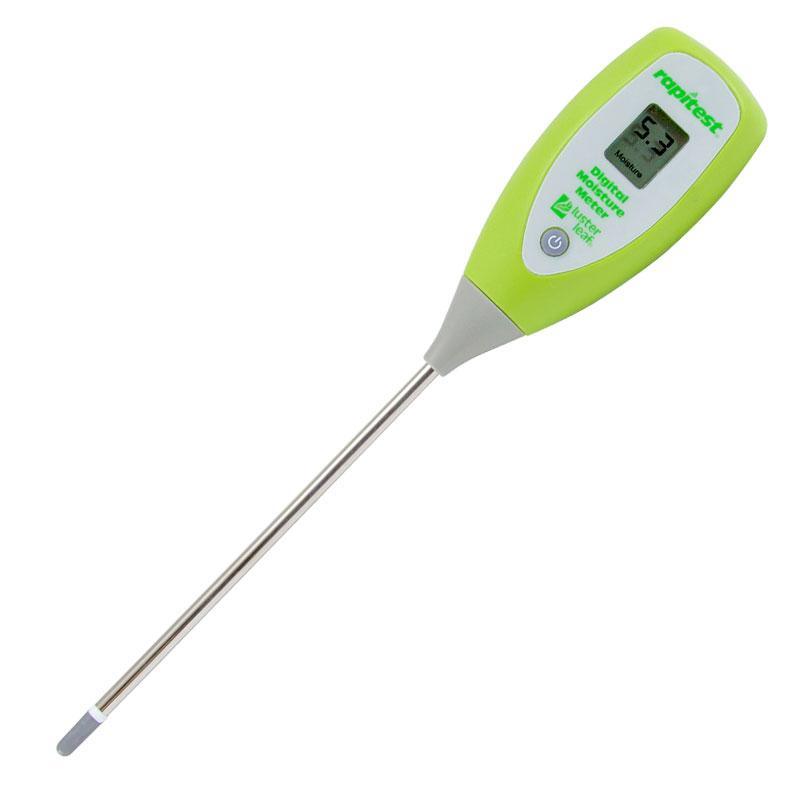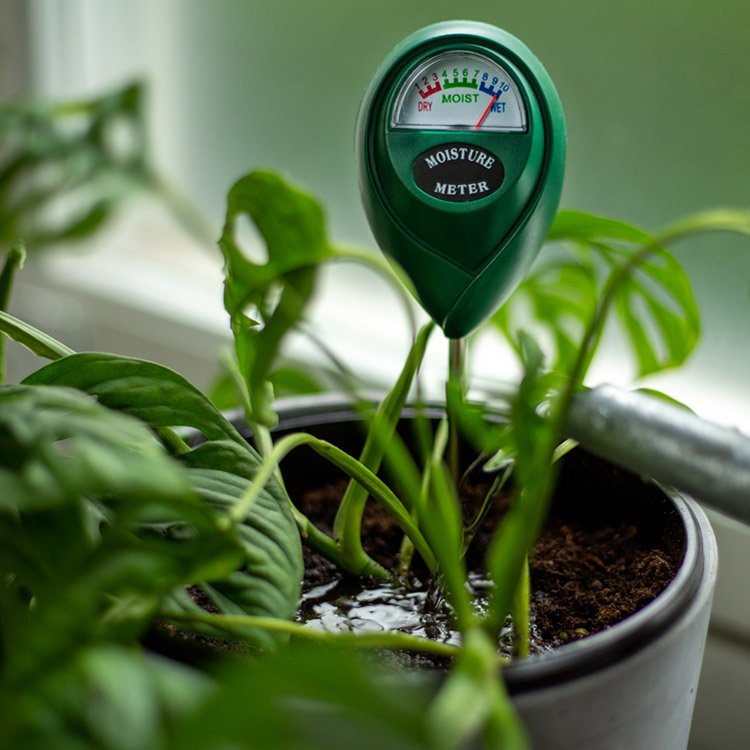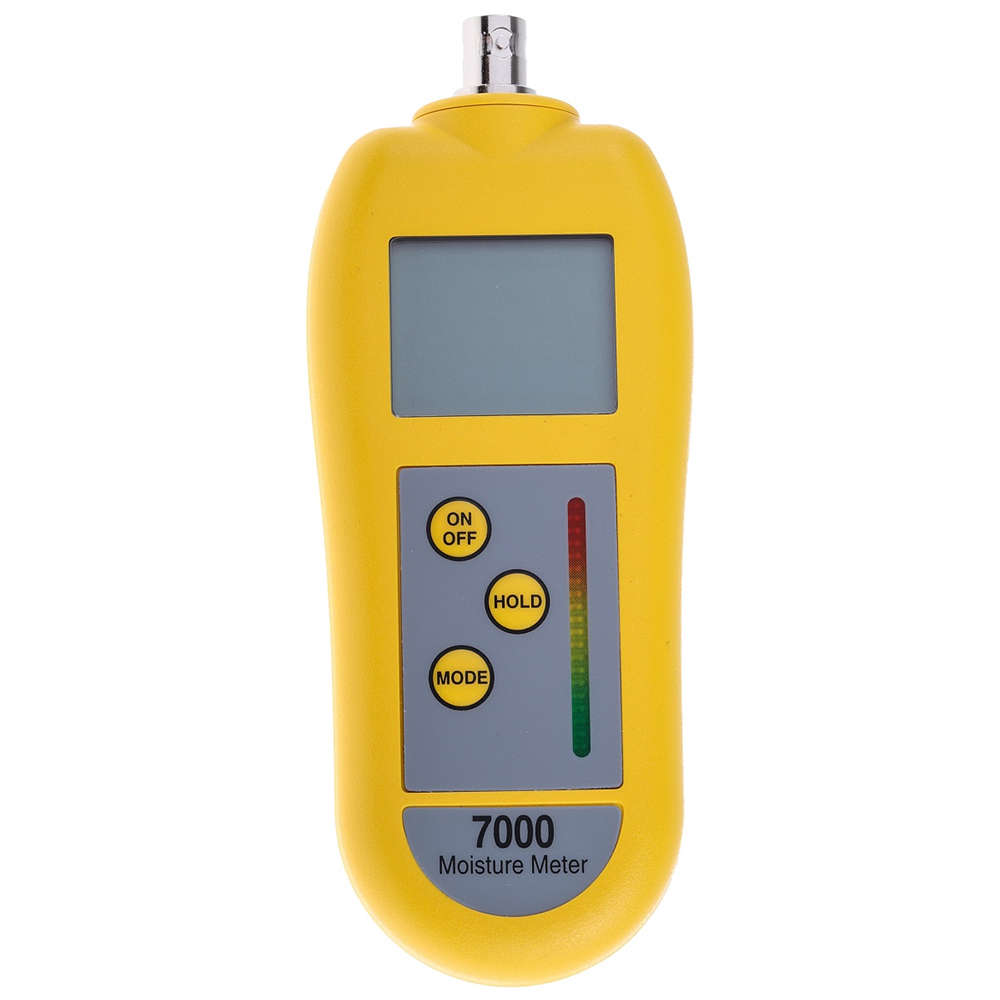The Ultimate Overview to Selecting the Right Moisture Meter for Your Needs
The Ultimate Overview to Selecting the Right Moisture Meter for Your Needs
Blog Article
The Ultimate Overview to Moisture Meters: A Comprehensive Introduction and Exactly How They Can Save You Money
In the realm of structure upkeep, building, and different industries, the significance of accurately measuring wetness degrees can not be overstated. Moisture meters act as essential tools in detecting and monitoring moisture web content in products, helping in preventing pricey problems and guaranteeing the quality of items. Comprehending the nuances of various sorts of moisture meters, their applications, and the possible cost-saving benefits they offer can be a game-changer for businesses and specialists alike. Finding just how these gadgets can not only simplify processes yet also add to economic savings is a trip worth starting.
Kinds of Moisture Meters
One common type is the pin-type dampness meter, which gauges the electrical resistance between two pins put right into a product. Pinless wetness meters, on the various other hand, usage electromagnetic sensor plates to scan a bigger location without causing damage to the material's surface.
Infrared moisture meters measure the thermal residential properties of a material to determine its moisture web content non-invasively, making them useful for applications where pin or pinless meters might not be ideal. Comprehending the different types of dampness meters readily available can assist markets choose the most appropriate device for their certain wetness measurement demands.

Advantages of Using Moisture Meters

Furthermore, utilizing dampness meters can bring about enhanced power performance. By recognizing areas with high wetness levels, such as leaks or bad insulation, changes can be made to boost energy conservation and lower utility expenses. In farming setups, dampness meters play an essential function in enhancing crop returns by making it possible for farmers to monitor soil moisture degrees and make informed watering decisions. In general, the advantages of using wetness meters cover across various sectors, providing cost-effective services and advertising far better top quality control techniques.
How to Pick the Right Moisture Meter
Picking the proper wetness meter includes taking into consideration crucial elements such as material compatibility, dimension variety, and calibration accuracy. When selecting a moisture meter, it's important to ensure that the meter appropriates for the certain material you why not find out more will certainly be screening. Different products have varying electric properties that can influence moisture readings, so picking a meter created for your product is vital for accurate outcomes. Additionally, consider the dimension variety of the dampness meter. Guarantee that the meter can detect wetness degrees within the array required for your applications. Calibration precision is another important element to maintain in mind (Moisture Meter). Go with a dampness meter with reliable calibration to make sure precise and constant analyses. Some meters may call for periodic calibration modifications, so recognizing the calibration process is very important. By carefully reviewing these elements, you can pick a moisture meter additional reading that satisfies your demands and provides precise wetness dimensions for your projects.
Appropriate Methods for Moisture Meter Use
To ensure exact moisture analyses and make the most of the effectiveness of a wetness meter, employing proper methods is necessary. When using a pin-type dampness meter, place the pins or probes into the product being evaluated till they make full contact. By complying with these proper methods, users can count on their wetness meter to provide credible moisture levels, assisting in stopping costly damages or ensuring top quality in various applications.

Price Cost Savings Through Moisture Meter Applications
Just how can the calculated utilization of wetness meters result in considerable expense savings throughout numerous sectors? Moisture meters play a crucial function in cost financial savings by protecting against potential damages and ensuring quality control in various sectors. In the agriculture market, dampness meters aid in identifying the optimal time for gathering plants, preventing excess or over-drying dampness that can impact the end product's high quality. This accurate surveillance aids farmers avoid unnecessary losses and maximize their yield.

Additionally, in the food processing market, wetness meters are vital for monitoring product quality and ensuring compliance with safety and security regulations. By properly gauging dampness content in food products, makers can stop putridity, maintain freshness, and reduce waste, resulting in substantial price savings. Overall, the strategic application of dampness meters is a useful financial investment that can result in substantial price decreases and boosted performance throughout different industries.
Verdict
In verdict, wetness meters are beneficial tools for determining and detecting wetness levels you could try here in various products. By making use of the best wetness meter and adhering to proper methods, users can efficiently stop costly damages triggered by excess wetness.
Dampness meters serve as vital devices in detecting and checking moisture content in materials, aiding in stopping pricey problems and ensuring the quality of products. Infrared moisture meters determine the thermal residential or commercial properties of a material to identify its wetness web content non-invasively, making them valuable for applications where pin or pinless meters might not be suitable.Dampness meters offer indispensable benefits in precisely examining and monitoring wetness levels in varied materials and environments. In farming setups, dampness meters play a critical duty in maximizing plant yields by making it possible for farmers to check dirt dampness degrees and make notified irrigation decisions.In conclusion, moisture meters are valuable tools for finding and determining wetness levels in numerous products.
Report this page